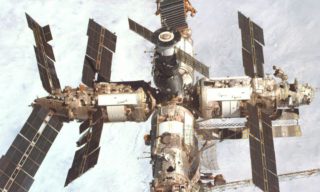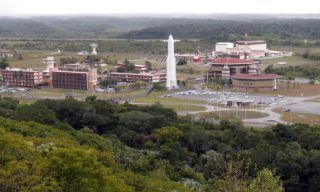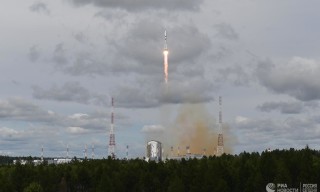On August 9, 2021, Prichal node module together with Progress M-UM cargo vehicle was delivered at Tyuratam railway station for further assembly and prelaunch preparation at Baikonur technical facilities.
At the present time all containers with Progress M-UM vehicle have been transported to the integration and assembly building at pad #254. Later RSC Energia specialists will start unloading ground-based test equipment and vehicle with the module, accomplish its primary inspection test and install them on working position for future technological operations following prelaunch preparation schedule.
Prichal insertion into the low-Earh orbit and integration in Russian ISS segment is planned for November 2021.
Node module is designed to increase Russian ISS segment technical and operational capabilities. It will be docked to the node of Nauka multipurpose laboratory module.
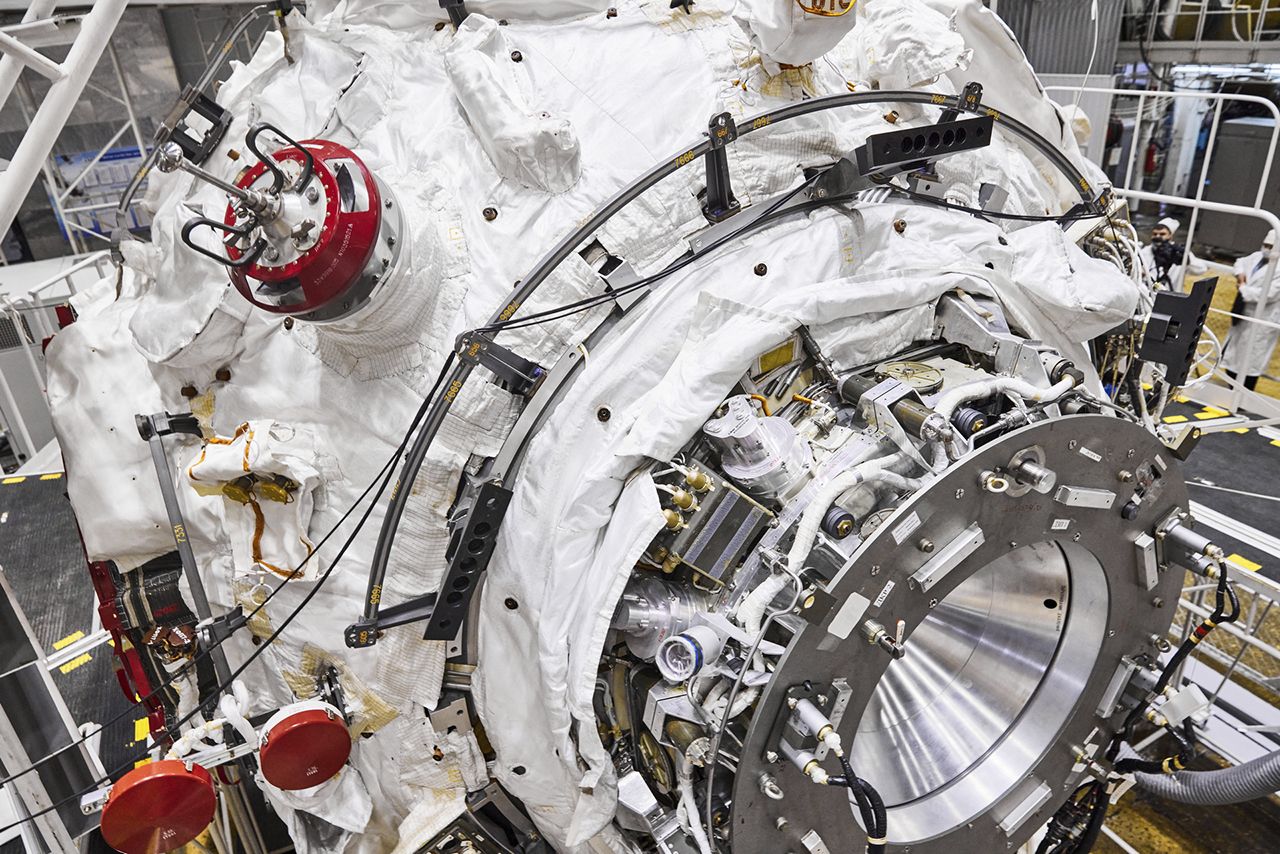
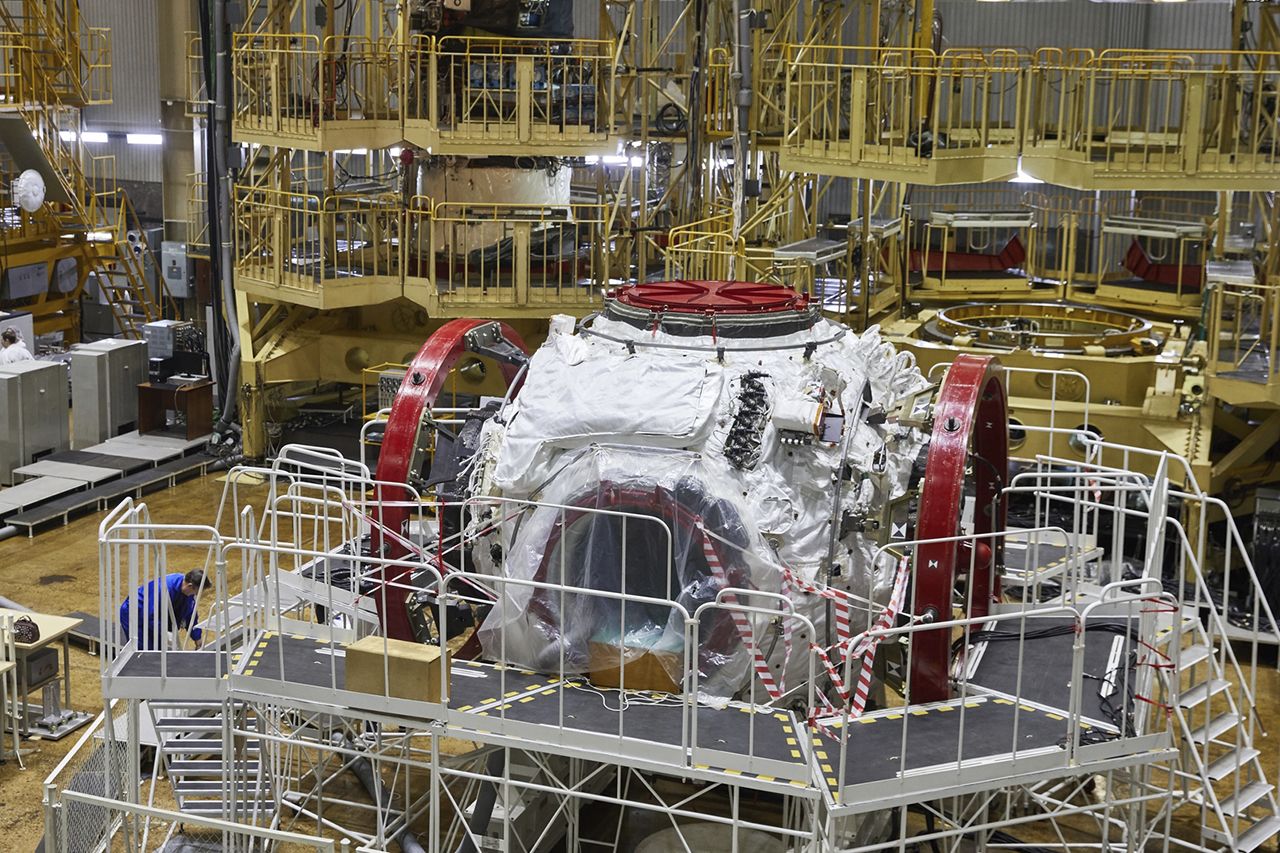
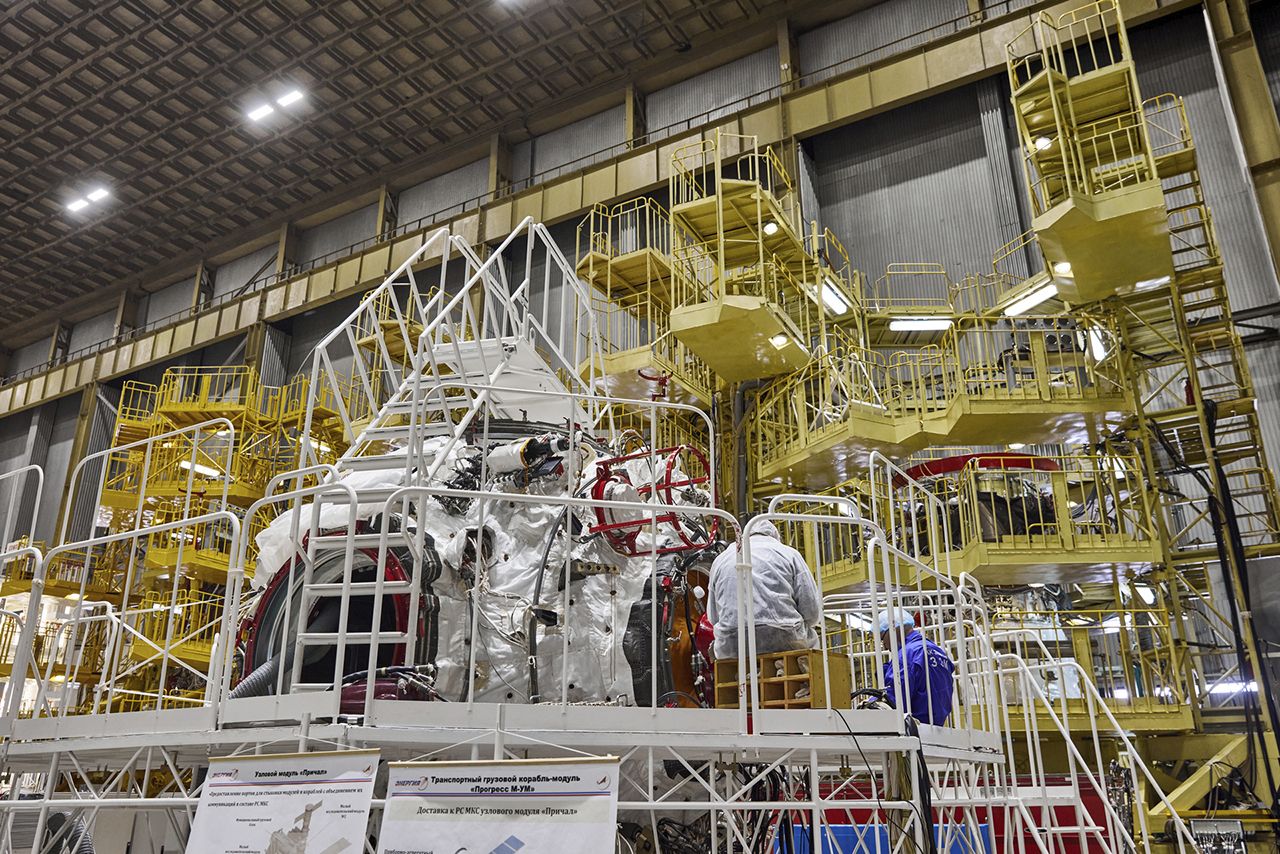

Photo credit: RSC Energia









